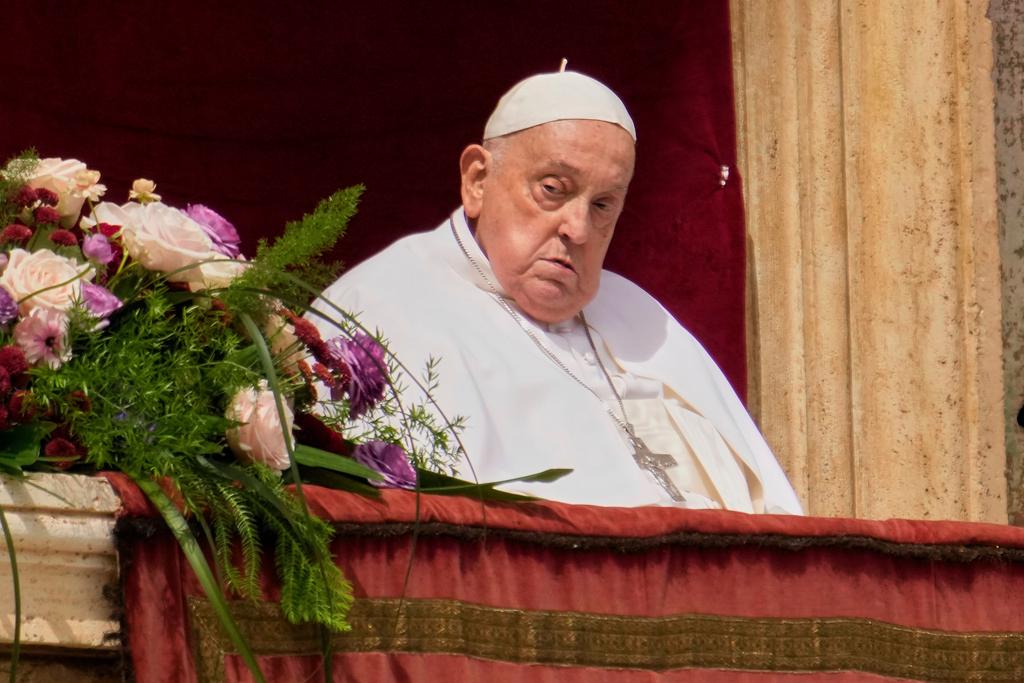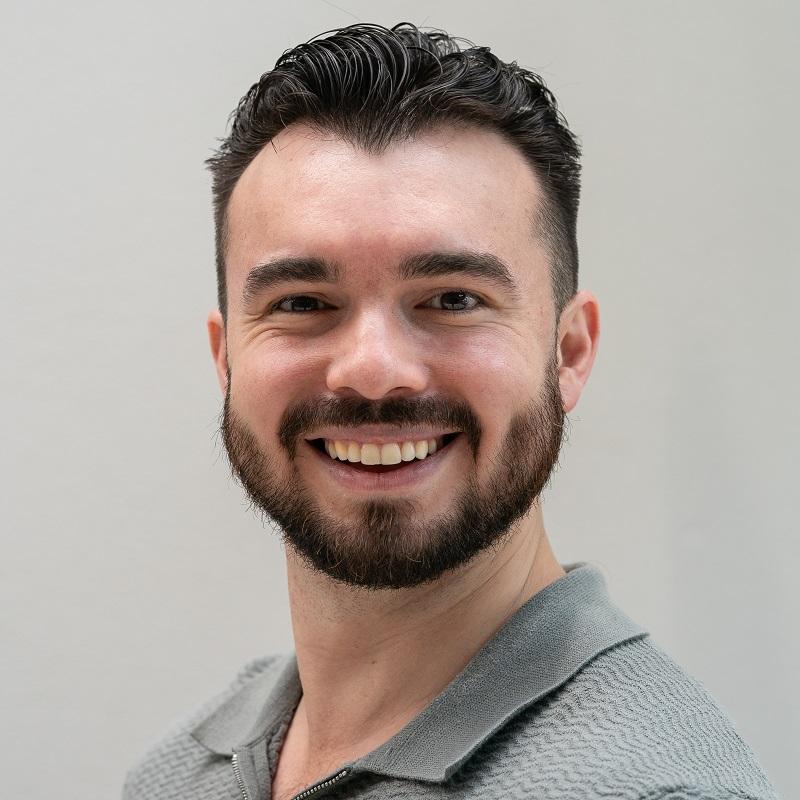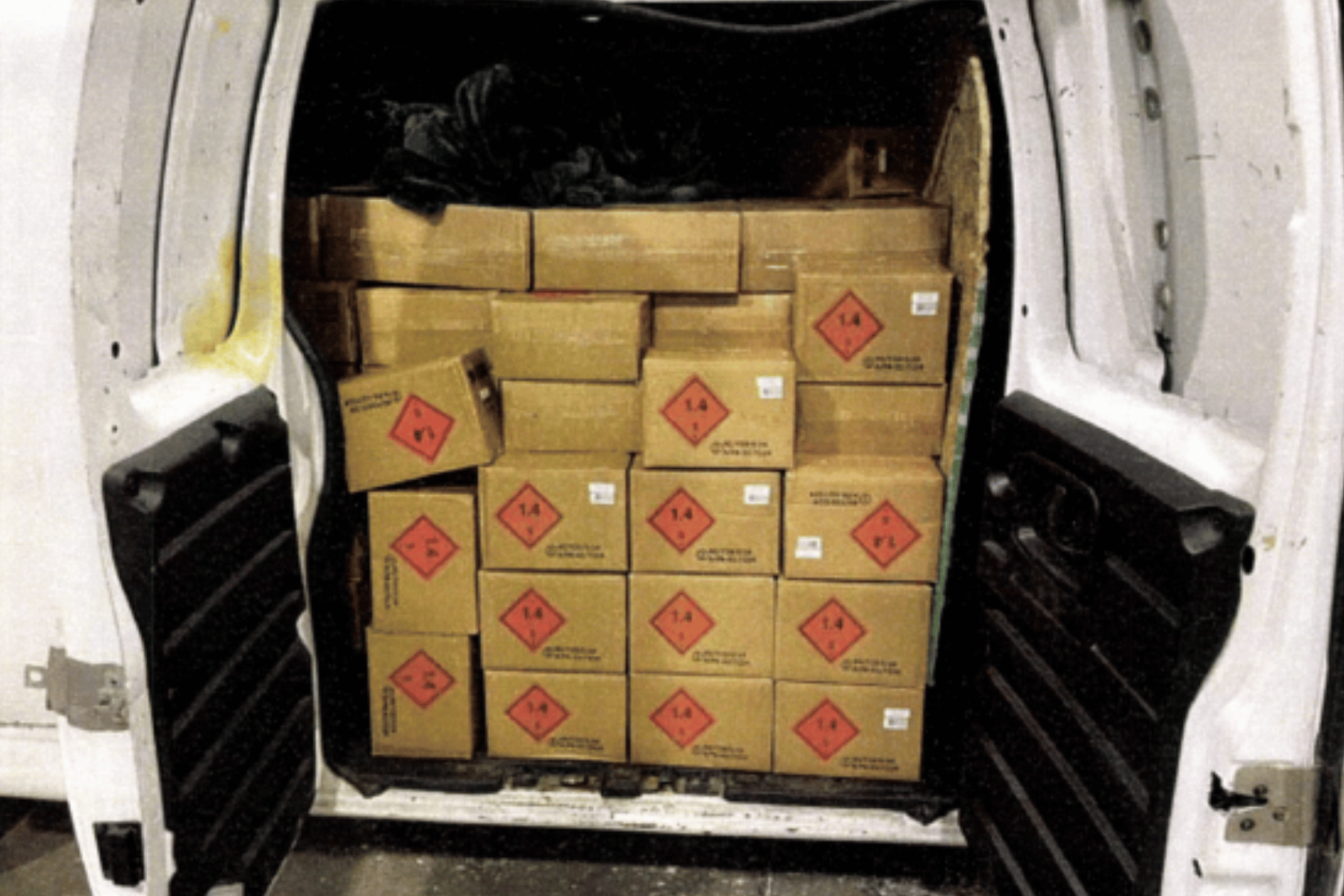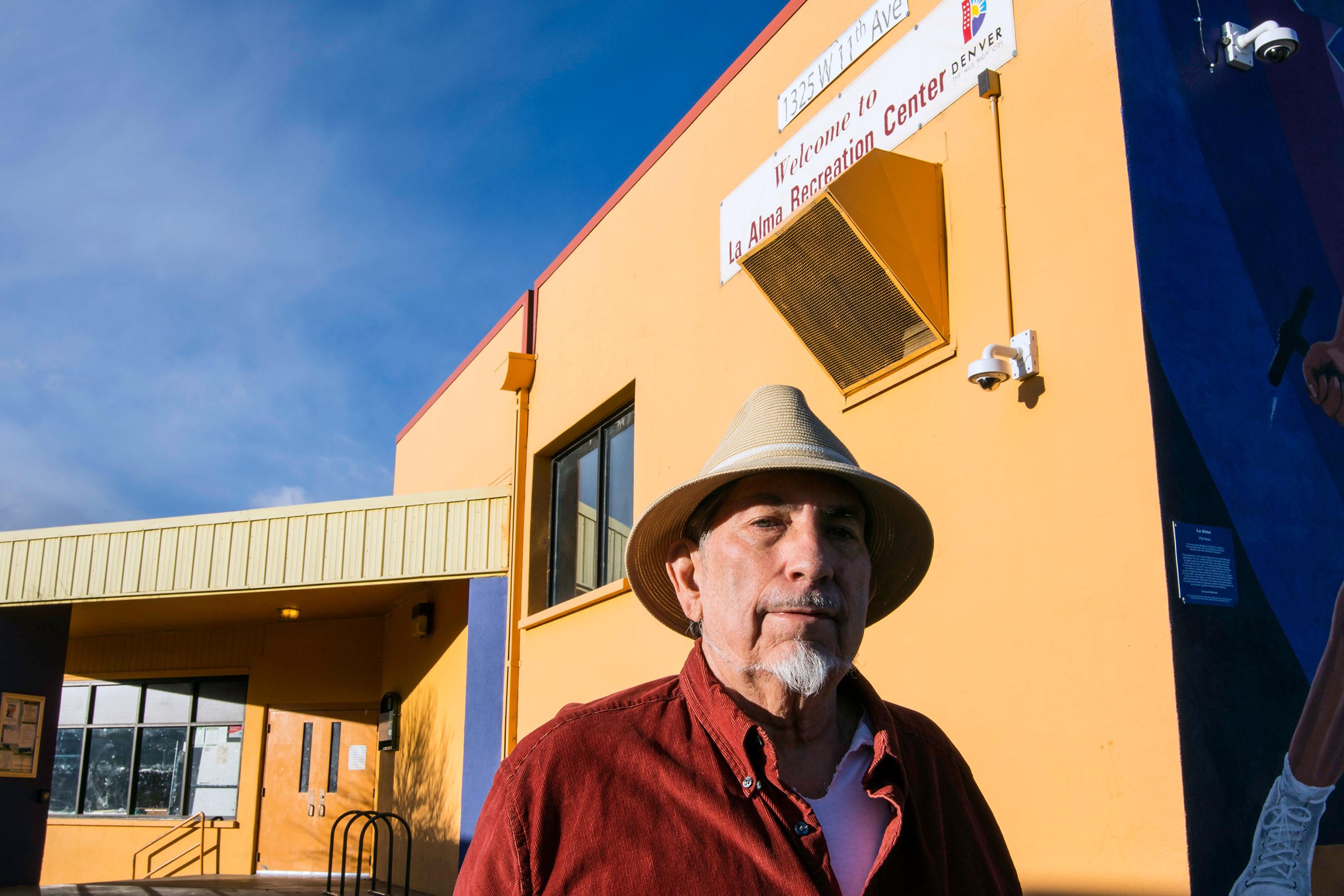
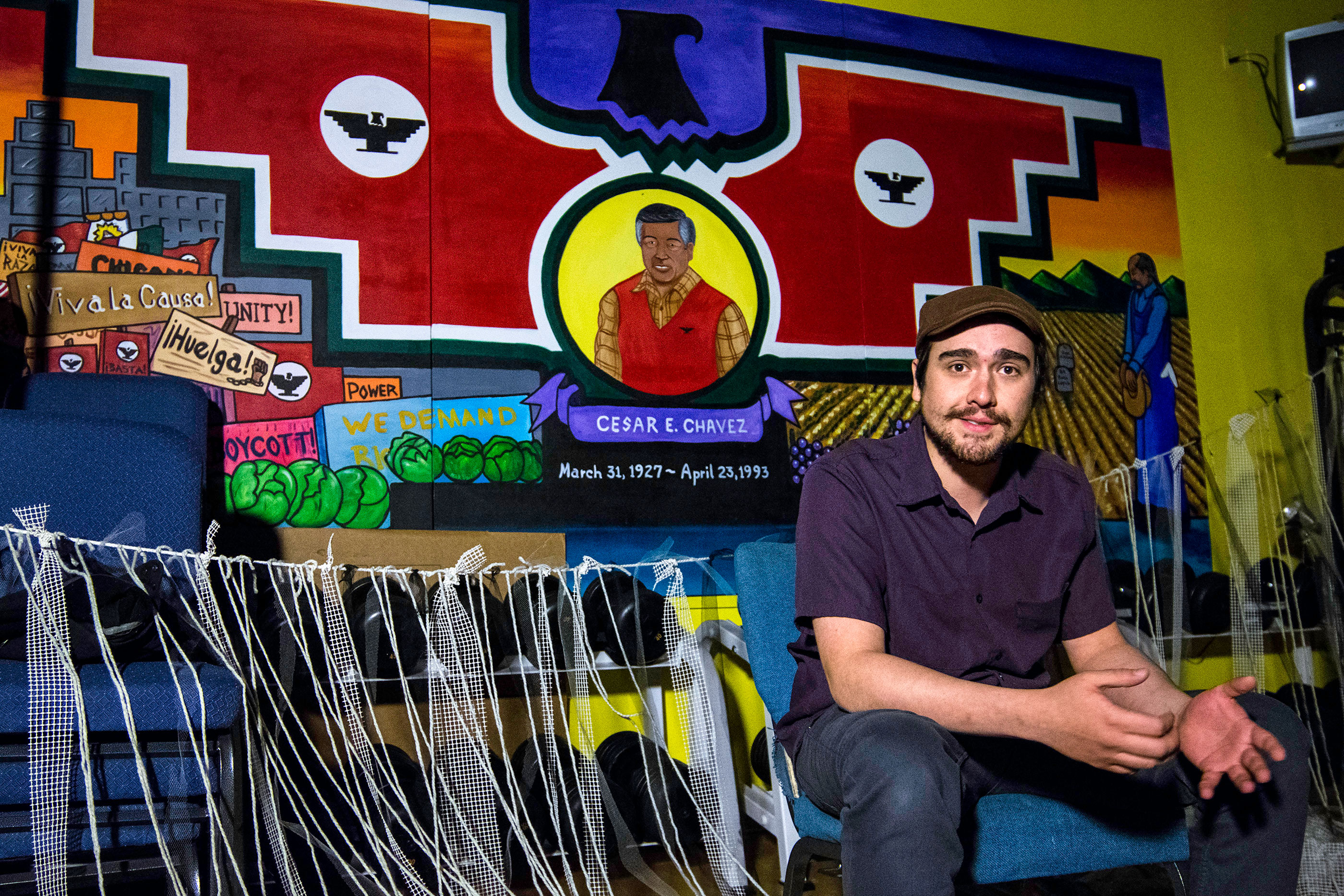
“La alma” is the Spanish word for soul or spirit. It’s also the word a community started using decades ago to describe the neighborhood around Lincoln Park, just southwest of downtown Denver.
La Alma-Lincoln Park has strong ties to the Chicano rights movement. Here you’ll find reminders of that history, like murals and the La Alma Recreation Center. But you’ll also see the forces of change. Just like other parts of burgeoning Denver, a lot of newcomers have moved in, and new buildings have sprouted up.
“There were a lot of things done here that need to be documented historically, so that people can see there’s hope,” longtime resident Esequiel “Kelly” Lovato, Jr. said.
Some of that history came to life during a recent run of immersive theatrical performances under the banner of “The Heart, The Soul.” Held at the La Alma rec center, the play came out of a two-year residency program, “Speak Up, Speak Out!”, through Mirror Image Arts.
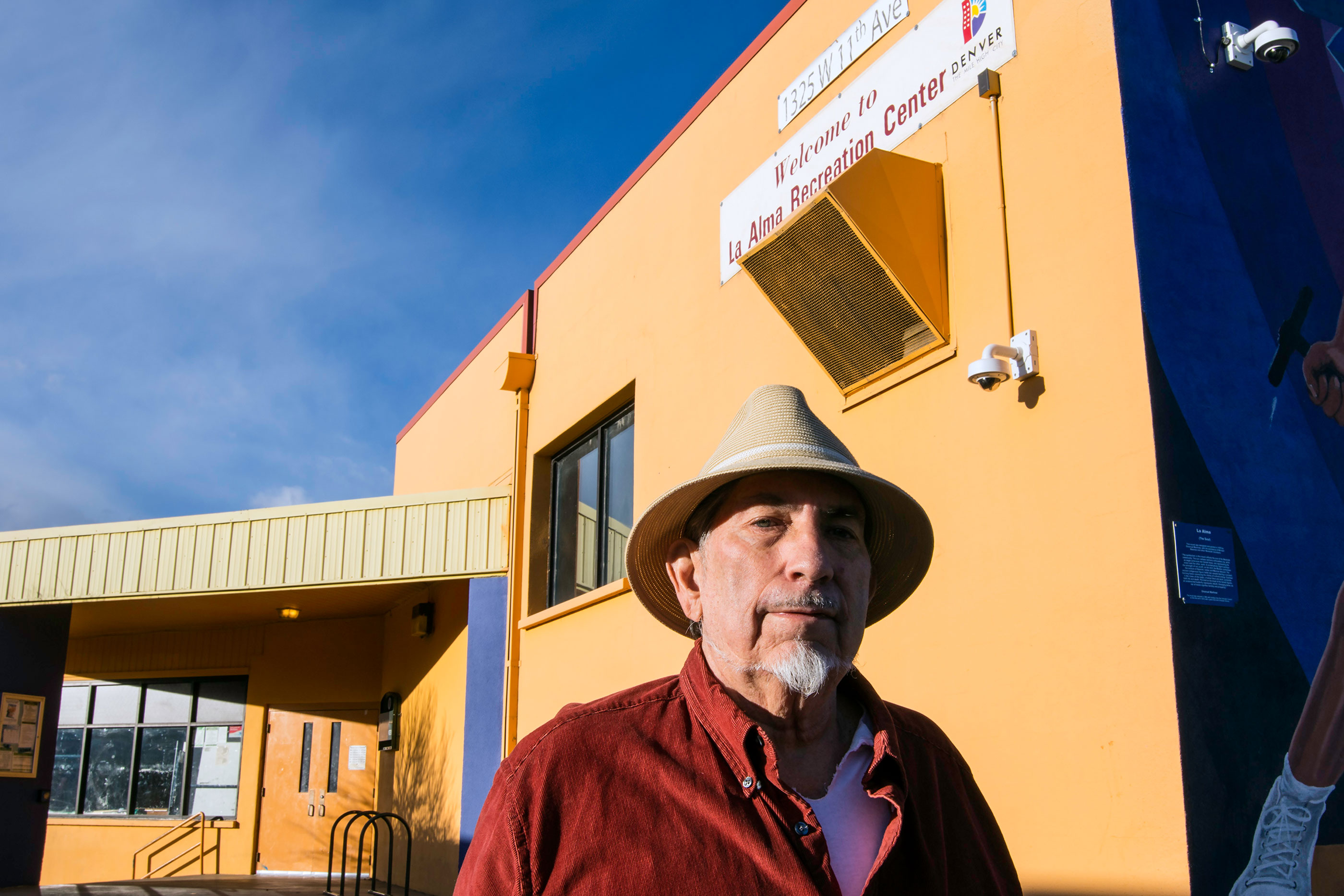
More than 40 years ago, Lovato helped establish the neighborhood’s first rec center inside a small maintenance shed the city handed over to a group of Chicano activists. They started out with arts and crafts, a few weights, and ping pong.
They wanted a space to keep young people out of trouble, and “to help them make the changes they needed to make in their lives,” Lovato said. “We saw recreation as being a really important key.”
It wasn’t easy for this largely low-income community to do that. They demanded the city give people from the neighborhood jobs at these facilities. They had a fight on their hands, Lovato said.
“It was a struggle on the part of the people, and it took a long time,” said Lovato, who recalls community takeovers of the pool and clashes with police.

When Mirror Image Arts program director Meghann Henry first stepped inside the La Alma rec center a year and a half ago, she felt like an outsider.
“You’re sort of feeling this anxiety like the first day of school,” Henry said.
Mirror Image Arts uses theater as part of its student outreach to prevent bullying. The nonprofit collaborated with the MY Denver after school program to find a particular community that’s in transition.
“It just took showing up, being there,” Henry said. “We had to give the time and sort of build that trust.”
When they established that trust, the project evolved. They recorded 45 interviews with La Alma-Lincoln Park residents of all ages and backgrounds. They learned about La Alma’s history, the plethora of public housing, and the influx of middle class and refugee families.
There’s so much change around Denver and La Alma-Lincoln Park that, “people are feeling disconnected from the neighborhood,” Henry said.

Those interviews inspired “The Heart, The Soul,” a full production with professional actors, dancers and community members.
“It was important that we tell the story in different ways because people consume information differently,” Henry said. “Maybe English isn’t your first language, so you can enjoy that piece that has no language.”
Area residents and community leaders wandered through different parts of the rec center’s community space, where different stories unfolded. One performer portrayed a range of characters who use the nearby Lincoln Park, like a homeless person sleeping on a bench or a jogger. That vignette was followed by audio of people describing what it’s like for them in the park. It’s a good reminder that we must coexist in our public spaces.
Another no dialog scene captured what it’s like to lose a longtime neighbor and the awkward tension that comes with meeting a new one.

Post-performance, the audience broke out into groups to share thoughts stirred up by “The Heart, The Soul.” Some spoke about simple solutions, like making an effort to learn neighbors’ names. Others, like 15-year-old Alicia Garcia, reflected on the past.
Garcia used to live in what’s known as the red projects. The old, brick buildings came down a few years ago to make way for the Denver Housing Authority’s Mariposa District for mixed incomes. She remembered outdoor movie nights and when families would gather to share food with others who couldn’t afford it.
“The play made me happy because I feel like we’re being heard as a community,” Garcia said.



